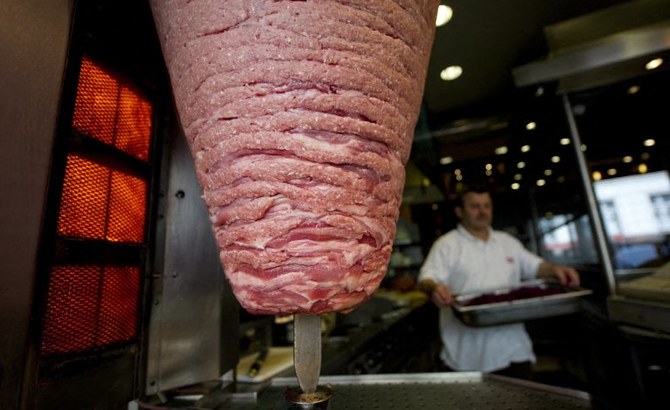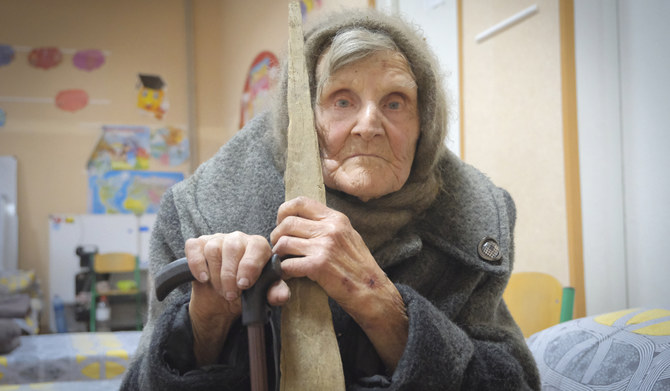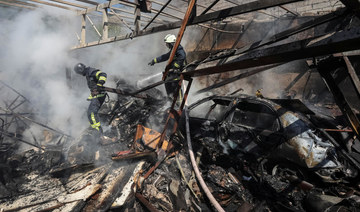When the Pakistani Taleban shot Malala Yousafzai in the head, their message to the world was simple: Girls have no right to an education and their dreams of a better future should be crushed.
The attack portrayed the world’s only Muslim nuclear power in an appalling light as Western leaders and celebrities fell over themselves to turn Malala into a global icon of child rights.
But as she gears up to address the UN General Assembly on Friday — her 16th birthday — more girls than ever in Malala’s home, Pakistan’s northwestern Swat valley, are in school.
In the first six months of the current year, 102,374 girls registered at primary schools in Swat — compared to a total of 96,540 during all of last year, said Dilshad Bibi, Swat district education officer.
Educationalists say the influx has less to do with Malala’s fame and more to do with a growing confidence that far from being resurgent, Taleban influence is declining in Swat.
“Many people think that Malala has nothing to do with the increase in girl students in schools,” said Erfaan Hussein Babak, head teacher of a private school in the town of Saidu Sharif.
“It is because of a general awareness among the masses that girls should also be educated,” he told AFP.
“There are many other girls who worked for education and continued their studies under the Taleban. They think that Malala was wrongly promoted by the media and was falsely hyped,” he said.
Anwar Sultana, headmistress of Government Girls High School No. 1, the oldest in Mingora, the main town in Swat, agrees.
“Many students were actually scared when the government named a college after Malala,” she said.
Last December, around 150 girls at another school protested against the renaming of their college after the injured schoolgirl, fearing it would make them a target for militants.
Malala has been nominated for the Nobel Peace prize and now being privately educated in Britain.
Sultana says more girls are going to school now not because of Malala, but because people feel increasingly liberated as more time passes since the Pakistan Army quashed a 2007-9 Taleban insurgency in the valley.
“Whenever you suppress something, it appears with more freedom,” Sultana told AFP, sitting on a verandah as girls in long white shirts and baggy trousers poured out of congested classrooms.
“Now more and more girls are joining schools, which means the fear is over,” Sultana said.
At Sultana’s school, there are no desks and chairs in the dark brown, grey and orange colored classrooms. Instead the girls sit on the floor to pack a maximum number into each room.
Saeeda Rahim, 13, is one of those girls. The Taleban stopped her and thousands of other girls from going to school between 2007 and 2009. When the army offensive came in 2009, she and her family were forced to flee for their safety.
Displaced for three months, she spent much of the time in tears, her dreams of getting an education and becoming a doctor in tatters.
“Those days were the most difficult of my life. I lost hope and courage. I had no energy to read. I thought I’d never be able to study again,” she told AFP.
When her family returned home, her mother initially refused to let her go back to school, fearing that she could be attacked.
Now, she is back at Government High School No 1. She covers her face with a white veil, wears the pink strip of a prefect — and says she takes inspiration from Malala.
“I really like her speeches. I want to continue her work, I want to appear in the media and convince parents that education is a right for their daughters,” she said.
There is certainly a long way to go.
Throughout Pakistan, nearly half of all children and nearly three quarters of young girls are not enrolled in primary school, according to UN and government statistics published late last year. In Malala’s northwestern Khyber Pakhtunkhwa province, only 36 percent of women and 72 percent of men are literate, according to the government. Muhammad Atif, the provincial education minister, says militants have destroyed 750 schools since 2008, of which 611 have been reconstructed.
The new provincial government, led by the party of former cricketer Imran Khan, has increased its annual education budget by 27 percent and declared female education its priority.
“Our government has allocated 66 billion rupees ($ 660 million), the highest amount in the provincial budget for education, and female education is our top priority,” said Atif.
Swat girls throng to school as Malala addresses UN
Swat girls throng to school as Malala addresses UN

‘Miracle’ survivor found 5 days after building collapse

- When we went down to the side of the slab we had uncovered, we heard somebody inside, and we stopped all the heavy operations
JOHANNESBURG: Rescuers and onlookers cheered and applauded on Saturday as a survivor was rescued after 116 hours from underneath the rubble of a collapsed building in South Africa, with the tragedy having killed at least 13.
Provincial premier Alan Winde said on X: “It is a miracle that we have all been hoping for.”
An apartment block under construction in the southern city of George crumbled on Monday afternoon while an 81-person crew was on site.
“When we went down to the side of the slab we had uncovered, we heard somebody inside, and we stopped all the heavy operations,” Colin Deiner, head of rescue operations, told reporters.
Rescuers then called out to the survivor, and he spoke back, Deiner said.
“He indicated to us that he’s got weight on his legs, and we’re very concerned about that after such a long period.” After several hours, the survivor was extricated and rushed to a hospital.
Rescue teams have been working against time since the structure came crashing down.
Twenty-nine people were rescued alive, while thirty-nine remained unaccounted for.
Winde said a “difficult” identification process was underway, and police were using fingerprints, DNA testing, and photographs.
The city had approved construction plans for a 42-unit apartment block in July.
The reasons for the collapse are still unknown.
Biden jokes Trump should have injected himself with bleach

- Biden also made light of Trump’s “love letters” from North Korean leader Kim Jong Un
- In a senior moment, Biden mistakenly referred to Kim as the president of South Korea
PORTOLA VALLEY, California: US President Joe Biden joked on Friday that he wished former President Donald Trump had injected himself with a little bleach, resurrecting one of Trump’s more head-scratching moments from the early days of the coronavirus pandemic.
Biden, at a fundraising event south of San Francisco for his re-election campaign, said the presidency of his Republican opponent was chaotic and that voters should keep that in mind. Biden and Trump are locked in a close contest ahead of the November election.
“Remember him saying the best thing to do is just inject a little bleach in your arm? That’s what he said. And he meant it. I wish he had done a little bit himself,” Biden said.
During the early months of the pandemic in 2020, Trump said that an “injection inside” the human body with a disinfectant like bleach or isopropyl alcohol could help protect against the virus.
Biden also made light of what he called Trump’s “love letters” from North Korean leader Kim Jong Un, although Biden mistakenly referred to Kim as the president of South Korea.
Trump had met with Kim and exchanged a number of letters with him, copies of which he kept in a loose-leaf binder in the Oval Office.
A spokesperson for the Trump campaign did not immediately respond to a request for comment on Biden’s remarks.
Biden has made light of Trump’s bleach comment before, saying on April 24 in Washington that Trump had injected himself and “it all went to his hair.”
Meaty issue: German political party calls for €4.90 price cap on doner kebabs

- Die Linke appeals to government as price of national favorite hits €10 in some cities
- Scheme would cost taxpayer about €4bn
LONDON: German political party Die Linke has urged the government to cap the price of a much loved food item — the doner kebab.
The party has proposed providing daily vouchers to households that would limit prices to €4.90 ($5.28) and €2.90 for young people under an initiative known as Donerpreisbremse.
The scheme is projected to cost the government about €4 billion.
Introduced after the Second World War by Turkish immigrants who adapted the dish to suit local tastes, the doner kebab is a national favorite in Germany, with an estimated 1.3 billion consumed annually. But their soaring price has become a hot-button political issue.
Die Linke said the cost of a doner kebab had reached €10 in some cities, from €4 just two years ago.
“For young people right now it is an issue as important as where they will move when they leave home,” said Hanna Steinmuller, a lawmaker with the Greens party.
“I know it’s not an everyday issue for many people here … but I think as voter representatives we are obliged to highlight these different perspectives.”
German Chancellor Olaf Scholz was famously confronted by a voter last year who demanded he “speak with Putin … I’m paying €8 for a doner.”
With public pressure mounting, Scholz recently acknowledged on social media that “everywhere I go, mostly by young people, I get asked if there should be a price cap for doner kebabs.”
Despite the appeals, the chancellor rejected the proposal, citing the impracticality of price controls in a free market economy.
Despite its humble origins as a street food, the doner kebab has become an unexpected point of political focus.
Last month, German President Frank-Walter Steinmeier sparked controversy when on a visit to Turkiye he gifted 60 kg of kebab meat from Berlin to Istanbul in what some called a clumsy attempt to symbolize the strong cultural ties between the two nations.
A 98-year-old in Ukraine walked miles to safety from Russians, with slippers and a cane

- Describing her journey, the nonagenarian said she had fallen twice and was forced to stop to rest at some points, even sleeping along the way before waking up and continuing her journey
KYIV, Ukraine: A 98-year-old woman in Ukraine who escaped Russian-occupied territory by walking almost 10 kilometers (6 miles) alone, wearing a pair of slippers and supported by a cane has been reunited with her family days after they were separated while fleeing to safety.
Lidia Stepanivna Lomikovska and her family decided to leave the frontline town of Ocheretyne, in the eastern Donetsk region, last week after Russian troops entered it and fighting intensified.
Russians have been advancing in the area, pounding Kyiv’s depleted, ammunition-deprived forces with artillery, drones and bombs.
“I woke up surrounded by shooting all around — so scary,” Lomikovska said in a video interview posted by the National Police of Donetsk region.
In the chaos of the departure, Lomikovska became separated from her son and two daughters-in-law, including one, Olha Lomikovska, injured by shrapnel days earlier. The younger family members took to back routes, but Lydia wanted to stay on the main road.
With a cane in one hand and steadying herself using a splintered piece of wood in the other, the pensioner walked all day without food and water to reach Ukrainian lines.
Describing her journey, the nonagenarian said she had fallen twice and was forced to stop to rest at some points, even sleeping along the way before waking up and continuing her journey.
“Once I lost balance and fell into weeds. I fell asleep … a little, and continued walking. And then, for the second time, again, I fell. But then I got up and thought to myself: “I need to keep walking, bit by bit,’” Lomikovska said.
Pavlo Diachenko, acting spokesman for the National Police of Ukraine in the Donetsk region, said Lomikovska was saved when Ukrainian soldiers spotted her walking along the road in the evening. They handed her over to the “White Angels,” a police group that evacuates citizens living on the front line, who then took her to a shelter for evacuees and contacted her relatives.
“I survived that war,’ she said referring to World War II. “I had to go through this war too, and in the end, I am left with nothing.
“That war wasn’t like this one. I saw that war. Not a single house burned down. But now – everything is on fire,” she said to her rescuer.
In the latest twist to the story, the chief executive of one of Ukraine’s largest banks announced on his Telegram channel Tuesday that the bank would purchase a house for the pensioner.
“Monobank will buy Lydia Stepanivna a house and she will surely live in it until the moment when this abomination disappears from our land,” Oleh Horokhovskyi said.
Amazon Purr-rime: Cat accidentally shipped to online retailer

- Galena was found safe by a warehouse worker at an Amazon center after vanishing from her home in Utah
LOS ANGELES: A curious cat that sneaked into an open box was shipped across the United States to an Amazon warehouse after its unknowing owners sealed it inside.
Carrie Clark’s pet, Galena, vanished from her Utah home on April 10, sparking a furious search that involved plastering “missing” posters around the neighborhood.
But a week later, a vet hundreds of miles (kilometers) away in Los Angeles got in touch to say the cat had been discovered in a box — alongside several pairs of boots — by a warehouse worker at an Amazon center.
“I ran to tell my husband that Galena was found and we broke down upon realizing that she must have jumped into an oversized box that we shipped out the previous Wednesday,” Clark told KSL TV in Salt Lake City.
“The box was a ‘try before you buy,’ and filled with steel-toed work boots.”
Clark and her husband jetted to Los Angeles, where they discovered Amazon employee Brandy Hunter had rescued Galena — a little hungry and thirsty after six days in a cardboard box, but otherwise unharmed.
“I could tell she belonged to someone by the way she was behaving,” said Hunter, according to Amazon.
“I took her home that night and went to the vet the next day to have her checked for a microchip, and the rest is history.”

















